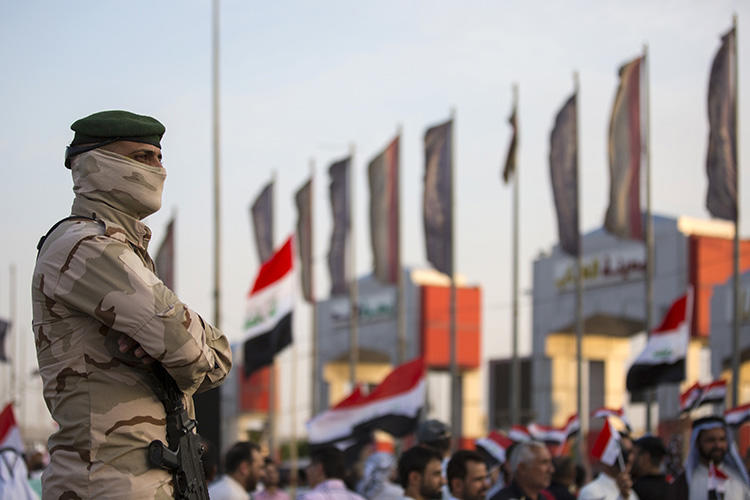New York, August 16, 2019—The Committee to Protect Journalists today condemned the issuing of an arrest warrant and a raid on the home of Hassan Sabah, a reporter for the Iraqi news broadcaster INEWS, in Basra, and called on Iraqi authorities to allow journalists to work freely and without fear of retaliation for their reporting.
On July 23, a police force consisting of Basra airport police officers and emergency regiments raided Sabah’s house in the southern Iraqi city of Basra seeking to arrest him, but he was not home, according to the National Union of Journalists in Iraq (NUJI), the local press freedom group the Press Freedom Advocacy Association in Iraq, and video footage and Facebook posts by Sabah. The police did not state the reason for the raid, according to the same reports and Sabah.
The Basra police directorate did not immediately reply to CPJ’s request for comment sent via email and social media.
Sabah told CPJ via messaging app that an Iraqi judge had issued a search and arrest warrant for him, which is still in force, in connection with a lawsuit that the Basra Airport Taxi Company filed against him in February 2018. Sabah, who continues to work from hiding, said he does not know when the judge issued the warrant.
Sabah told CPJ that the raid coincided with the publication of an INEWS report on the alleged use of 96 million Iraqi dinars ($80,500) worth of public funds by a senior public official to buy a car for his cousin, who is a district judge in Basra.
“We strongly condemn the raid on reporter Hassan Sabah’s home and the order for his arrest,” said CPJ Middle East and North Africa Representative Ignacio Miguel Delgado. “We call on the Iraqi authorities to stop their harassment of Sabah and to allow journalists in Basra to work freely and without fear of reprisal.”
According to Sabah, the Basra Airport Taxi Company filed the lawsuit on February 18, 2018, because of a video he had posted on his Facebook account on December 24, 2017, criticizing the hefty fees that the company charges for taking people to Basra. He told CPJ that he was charged under Articles 430 and 434 of the Iraqi penal code. Article 434 refers to insult and defamation and is punishable with one year in jail, and Article 430 refers to the imputation or revelation of the commission of a felony and is punishable with up to seven years in jail, according to the 1969 Iraqi penal code.
According to a CPJ review of the Facebook video, Sabah shows travelers arriving at the airport waiting a long time for a taxi ride and then paying expensive fares to be taken to the city. He interviews a traveler waiting for a taxi and then a taxi driver from another company with cheaper fares.
Sabah told CPJ: “The arrest warrant against me is still valid and has forced me to leave my house. I am semi-homeless and I fear for my safety and that of my family.” Sabah has previously reported on alleged corruption in Basra’s ports, and he told CPJ he believed he had been targeted as a result. “My house has been attacked twice already by assailants affiliated with local militias. There was a bomb attack less than a year ago and it was riddled with bullets over a year ago. The local authorities are unable to protect me and several lawyers have refused to defend me, so I call for international protection.”
Sabah showed CPJ pictures of the destruction he said was caused by the attacks on his house.
Since protests broke out in Basra in July 2018, journalists have been threatened, assaulted, detained, and prevented from covering the protests by security forces and Iran-backed militias, according to CPJ research.
On July 19, 2019, a group of protesters assaulted Ayman al-Sheikh, a reporter for the private Iraqi broadcaster Al-Sharqiyya, while he was covering a demonstration in Basra by the Al-Hikma National Movement, CPJ reported at the time.
